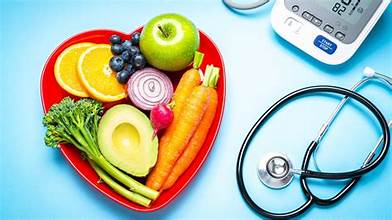Embark on a journey towards better health with lifestyle changes to reduce high blood pressure. Learn how simple adjustments in your daily routine can have a significant impact on your overall well-being.
Explore the various aspects of diet, exercise, stress management, and weight control that play a crucial role in maintaining healthy blood pressure levels.
. Regular physical activity can reduce the risk of heart disease, stroke, and other cardiovascular conditions by improving heart function, reducing cholesterol levels, and maintaining a healthy weight.
Importance of Lifestyle Changes
Implementing lifestyle changes is crucial in reducing high blood pressure and improving overall health. By making sustainable adjustments to daily habits, individuals can effectively lower their blood pressure levels and decrease the risk of related health complications.Positive Impact of Lifestyle Changes
- Healthy Diet: Consuming a balanced diet rich in fruits, vegetables, whole grains, and lean proteins can help regulate blood pressure. Limiting sodium, processed foods, and saturated fats is also beneficial.
- Regular Exercise: Engaging in physical activity such as brisk walking, swimming, or cycling can strengthen the heart and improve circulation, leading to lower blood pressure readings.
- Weight Management: Maintaining a healthy weight through a combination of diet and exercise can reduce the strain on the heart and blood vessels, ultimately lowering blood pressure.
- Stress Reduction: Managing stress through relaxation techniques, mindfulness, or hobbies can help prevent spikes in blood pressure caused by tension and anxiety.
Role of Lifestyle Modifications for Long-term Blood Pressure Management
Lifestyle modifications serve as a sustainable solution for managing high blood pressure in the long run. Unlike medications that may have side effects or need adjustment over time, lifestyle changes offer a holistic approach to maintaining healthy blood pressure levels. By adopting healthy habits consistently, individuals can support their cardiovascular health and reduce the reliance on medication to control blood pressure.Dietary Adjustments
To lower high blood pressure, making dietary adjustments is crucial. Certain foods can help manage blood pressure effectively and reduce the risk of cardiovascular diseases.DASH Diet vs. Mediterranean Diet
Both the DASH (Dietary Approaches to Stop Hypertension) diet and the Mediterranean diet are known for their ability to lower blood pressure. The DASH diet focuses on fruits, vegetables, whole grains, and lean proteins while limiting salt intake. On the other hand, the Mediterranean diet emphasizes healthy fats, such as olive oil and nuts, along with plenty of fruits, vegetables, and whole grains. Both diets have been shown to be effective in reducing high blood pressure levels.Foods Beneficial for Managing High Blood Pressure
- Leafy greens: Spinach, kale, and collard greens are rich in potassium, which helps regulate blood pressure.
- Berries: Blueberries, strawberries, and raspberries are packed with antioxidants that promote heart health.
- Oats: Whole grains like oats are high in fiber and can help reduce blood pressure.
- Fatty fish: Salmon, mackerel, and sardines are excellent sources of omega-3 fatty acids, which have been linked to lower blood pressure.
- Nuts and seeds: Almonds, chia seeds, and flaxseeds are great for heart health and can help manage blood pressure.
- Garlic: Known for its numerous health benefits, garlic may help lower blood pressure levels.
Physical Activity
Regular exercise plays a crucial role in reducing high blood pressure and improving overall cardiovascular health. Exercise helps in regulating blood pressure by strengthening the heart, improving blood flow, and reducing stress on the arteries.Effective Physical Activities
- Cardiovascular exercises such as brisk walking, running, cycling, and swimming are highly effective in lowering blood pressure.
- Strength training exercises, including weightlifting and resistance training, can also help in reducing high blood pressure.
- Yoga and Pilates are beneficial for managing stress and promoting relaxation, which can contribute to lower blood pressure levels.
By engaging in regular exercise, individuals can significantly enhance their cardiovascular health and effectively manage high blood pressure.
Stress Management Techniques
Stress can significantly impact blood pressure levels, so it's crucial to incorporate effective stress management techniques into your daily routine. By reducing stress, you can help lower your risk of hypertension and improve your overall health.Relaxation Techniques
- Practice Meditation: Engaging in regular meditation can help calm the mind and reduce stress levels. Find a quiet place, focus on your breathing, and let go of negative thoughts.
- Deep Breathing Exercises: Deep breathing exercises can help slow down your heart rate and promote relaxation. Take deep breaths in through your nose, hold for a few seconds, and then exhale slowly through your mouth.
- Yoga: Yoga combines physical postures, breathing exercises, and meditation to enhance relaxation and reduce stress. Consider incorporating yoga into your weekly routine for both physical and mental benefits.
Connection Between Stress and Blood Pressure
Stress triggers the body's "fight or flight" response, leading to an increase in heart rate and blood pressure. Chronic stress can contribute to the development of hypertension over time. By managing stress effectively, you can help regulate your blood pressure and reduce the risk of cardiovascular issues.Weight Management
Managing weight plays a crucial role in controlling high blood pressure. Excess weight puts added strain on the heart, leading to increased blood pressure levels. By achieving and maintaining a healthy weight, individuals can significantly reduce their risk of hypertension and its associated complications.Tips for Achieving and Maintaining a Healthy Weight
- Focus on a balanced diet rich in fruits, vegetables, whole grains, and lean proteins.
- Avoid processed foods high in saturated fats, sugars, and sodium.
- Engage in regular physical activity, such as brisk walking, swimming, or cycling, for at least 30 minutes a day.
- Monitor portion sizes and practice mindful eating to prevent overeating.
- Stay hydrated by drinking plenty of water throughout the day.










